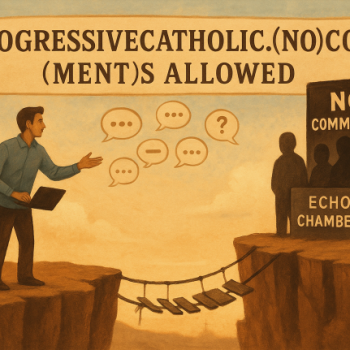GODSTUFF:
WAKE UP, SLOW DOWN AND REMEMBER WHAT MATTERS
You know you’re too busy when:
– You become distracted mid-application and manage to put deodorant on only one armpit.
– E-mails to yourself and sticky-note reminders stop working altogether and you have to make lists on the top of your hand in permanent marker.
– The inked reminders on your hand become such a frequent occurrence that your boss asks you if you have a tattoo. And he’s not joking.
– You can’t sleep because your brain won’t stop working on the six projects you’re juggling even when your body is bone tired, and the only effect Ambien has on you is the sudden supernatural ability to make French toast in the middle of the night (which you discover when you find the syrup-covered plate on your nightstand).
– You forget where you’re going while you’re driving. Three times in two days. Once while you’re on your way home from the office.
– People ask you how you are, and the first — sometimes the only — thing that comes to mind is “busy.”
I’m too busy.
I’m also tired.
And I’m tired of being too busy.
The day the Rev. Stephen Bauman came to visit me in Chicago a couple of weeks ago, I was so busy juggling news and tasks and obligations that I had to postpone our meeting.
And when we finally sat down to chat, it took me a few minutes to remember his first AND last names.
Dave. No. Phil. No. Steve. It’s Steve. Right. OK. Booker. No. Taubman. No. . . .
You get the picture.
There’s a reason someone came up with the term “scatterbrained.”
It seems, Bauman reassured me, that I’m not alone. What I’m suffering from is a systemic, cultural problem.
We all need a break, says Bauman, longtime senior pastor of Christ Church in New York City and author of the new book Simple Truths: On Values, Civility and Our Common Good.
“There are simple truths to which we all have access and these truths are lost in the clutter of our day and age, in the clutter and content of our information and everything that bombards us,” Bauman told me. “People are exhausted from it.”
Amen, my brother.
I’m overwhelmed, I told him. And not just with tasks to do. The sheer volume of ideas and issues and urgent needs — personal and societal — and incessant conversations and noise of this American life are simply draining if you attempt to engage them intellectually, emotionally or spiritually.
People are looking for a restful moment. They’re searching for something simpler than this. They’re yearning for that still, small voice amidst the daily cacophony of shouted opinions, accusations and vitriol.
That’s what I’m hearing from everyone and with increasing desperation.
It was precisely that sense of too much, too busy that led Bauman about eight years ago to start recording 60-second radio messages. His one-minute “prompts,” as they’re called, air on WCBS radio in New York, one of the city’s busiest news stations.
What could someone possibly say in a minute that could make a difference?
“One minute is but a meaningless sound bite — that’s one response, I suppose,” Bauman wrote in the preface to Simple Truths, a collection of many of his thought-provoking but not expressly religious 60-second messages. “On the other hand, one minute might also be a window on eternity, or at least and more likely, the next hour.”
The idea of Bauman’s paid radio spots was to interrupt the rat-a-tat-tat of daily life with a kind of spiritual timeout.
We suffer from chronic “partial attention,” Bauman said, offering one of his own stories as an example.
“My daughter called from college. I was working on the computer. I was on the phone with her and I hit call waiting. I told her I would get back to her. I was checking e-mail at the same time. I finished my call and I finished [e-mailing]. And a full 12 hours passed before I realized she had called,” he said.
“We have all of this ability to be in touch, but honest connection or robust connection is a different thing. So that becomes a choice,” he said. “When I can have everything, in order to have a simple life I have to choose one thing, not 15 things, particularly when it comes to determining what is important and meaningful in my life. Part of it is becoming alert. It’s not unlike the notion of waking up — waking up to everything that is in my world and my relationship to it.”
One message from Bauman’s book that I’ve been ruminating on (which I guess is the point) was inspired by the death of former Beatle George Harrison after a long battle with cancer.
“Interestingly, the obituary I read at the time included an oft-repeated comment made by Harrison who said, ‘Everything else can wait, but the search for God cannot wait,’ ” Bauman wrote. “Ahead of his time 40-some years ago, I wonder if he wasn’t right on time for today. Perhaps it was his prolonged confrontation with mortality that catalyzed this homely wisdom. Given his notoriety, I thought this quiet expression served to amplify the wake-up call we’ve experienced these first years of the new millennium.”
When we’re too busy, we forget about the things that actually matter. We don’t see the people around us. We don’t have time to consider them, to be civil, to make decisions that are kind — to others and to ourselves.
“We have to choose from this panoply, out of this wonderful cafeteria that is given to us,” Bauman said. “People are longing. They’re desperate. Not for 15 things, but for the one thing that really matters.”
What is that one thing?
Bauman and I think we know what it might be. But, at the end of the day, as Jack Palance told Billy Crystal in “City Slickers,” “That’s what you’ve got to figure out.”
Whatever it is, when you find it — when each of us discovers what it is that really matters — it will be simple.
“There is a deep yearning in our culture right now for a more substantial conversation about things that matter,” Bauman said. “One of the things that frustrates me most is the fact that the conversation that’s going on among the ‘religious’ leaders in our culture is awful. It’s been completely politicized. It’s been co-opted by politics, willingly, for a cozy relationship with temporary power, which is religion at its worst.”
Sectarianism, partisanship and the vitriolic verbal attacks that often pass for public discourse are symptoms of a culture that’s too busy to consider civility, he said.
“I see civility as an aspect of the common good. In a sense, it’s a simple truth,” he said. “It’s perhaps not the deepest truth, civility, but I think it’s a reflection, a symptom, if you will, of our commitment to the common good.”
Sometimes when people suffer a heart attack or a stress-induced ailment, they end up saying it was a “wake-up call.”
I don’t want to have to slow down because my body doesn’t give me any other choice.
I don’t want to wake up that way.
Do you?
Copyright © The Sun-Times Company
All rights reserved. This material may not be published, broadcast, rewritten, or redistributed.















